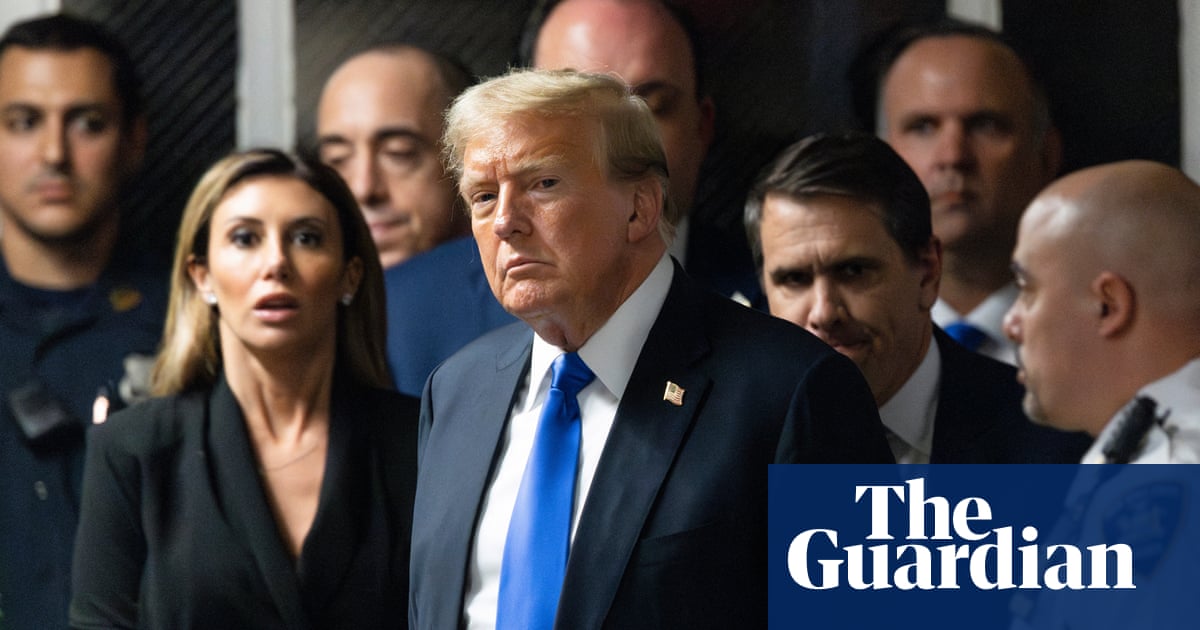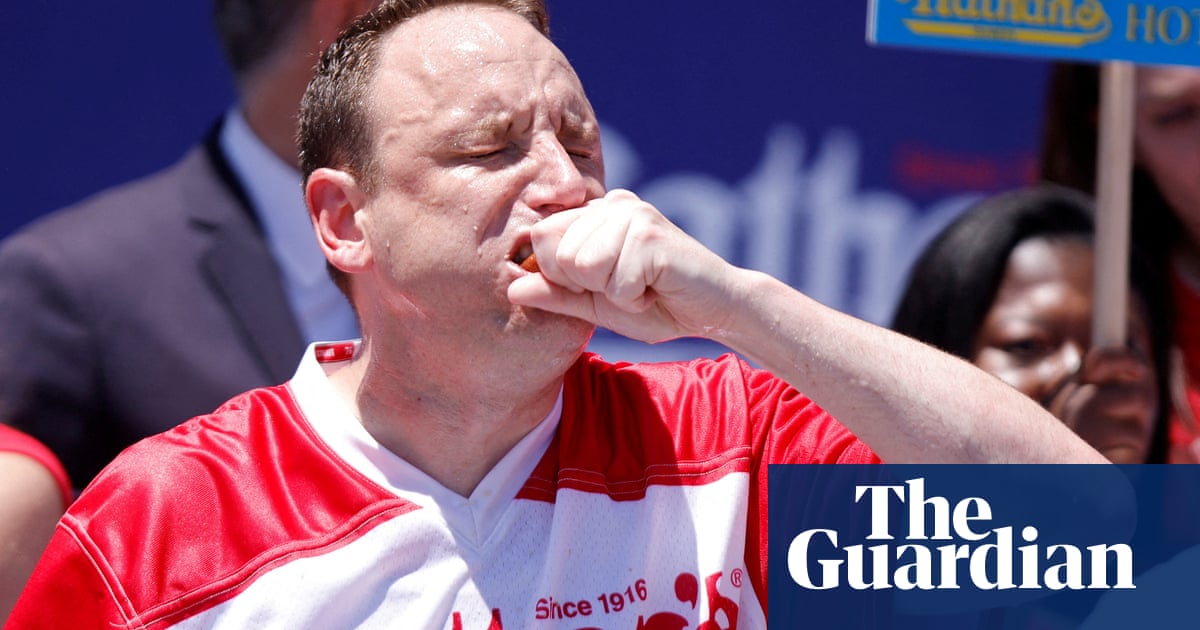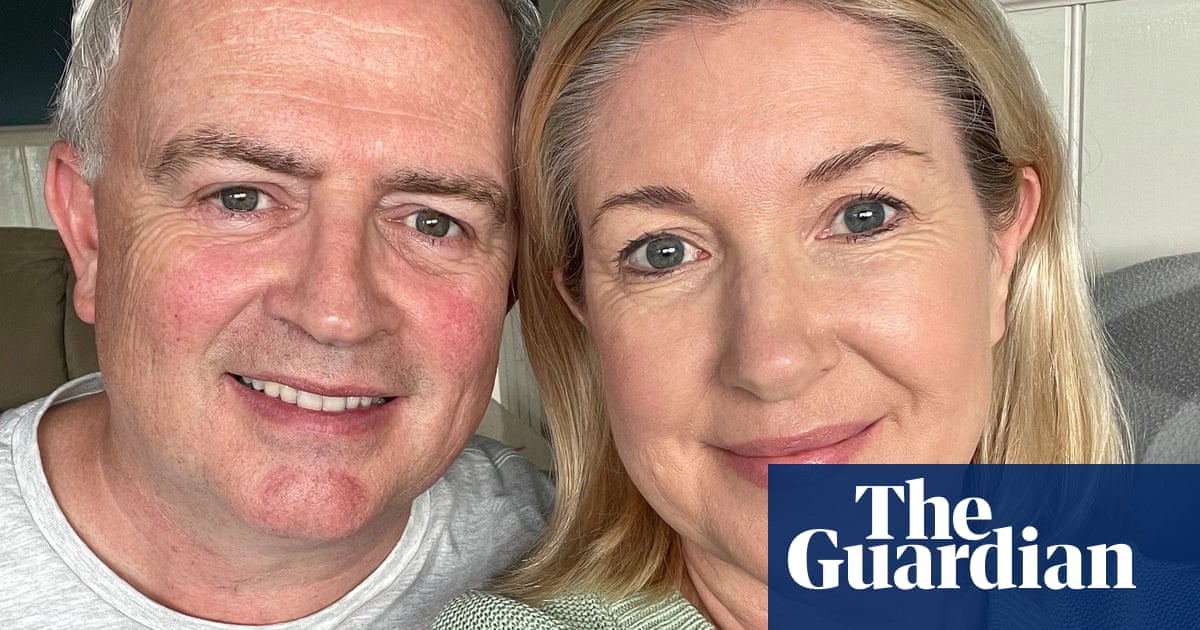Donald Trump has been found guilty of all 34 counts of falsifying business records in a criminal hush-money scheme to influence the outcome of the 2016 election.
The verdict came after a jury deliberated for less than 12 hours in the unprecedented first criminal trial against a US president, current or former. It marks a perilous political moment for Trump, the presumptive nominee for the Republican nomination, whose poll numbers have remained unchanged throughout the trial but could tank at any moment.
Trump was convicted by a jury of 12 New Yorkers of felony falsification of business records, which makes it a crime for a person to make or cause false entries in records with the intent to commit a second crime. He will be sentenced on 11 July at 10am ET.
“This was a rigged trial by a conflicted judge who was corrupt,” Trump said at the courthouse after the verdict was read. “This was a rigged trial, a disgrace.”
Joe Biden’s campaign hit back in an email sent soon after the verdict.
“In New York today, we saw that no one is above the law. Donald Trump has always mistakenly believed he would never face consequences for breaking the law for his own personal gain,” wrote Michael Tyler, communications director.
“But today’s verdict does not change the fact that the American people face a simple reality. There is still only one way to keep Donald Trump out of the Oval Office: at the ballot box. Convicted felon or not, Trump will be the Republican nominee for president.”
In Trump’s case, the Manhattan district attorney’s office alleged Trump falsely recorded the reimbursements he made to his former lawyer Michael Cohen, who paid the adult film star Stormy Daniels $130,000 for her silence about her affair with Trump, as “legal expenses”.
The prosecution alleged the falsifications were made to conceal Trump’s violation of New York state election law, which makes it a crime to promote the election of any person to office through unlawful means.
Prosecutors argued in part that those unlawful means were the $130,000 payment to Daniels, which was in effect an illegal campaign contribution, because it was done solely for the benefit of his 2016 campaign and exceeded the $2,700 individual contribution cap.
The Manhattan district attorney’s office called 20 witnesses who, over the course of four weeks, gave evidence of how Trump plotted with the tabloid mogul David Pecker and Cohen to bury accounts of affairs with Daniels and the Playboy model Karen McDougal.
The witnesses – some friendly to Trump, others openly hostile – said Trump’s worry over the Daniels story intensified after the October 2016 release of the infamous Access Hollywood tape, in which Trump was caught on a hot mic bragging about sexual assault.
The recording featured Trump boasting about being able to grab women “by the pussy” without their consent because he was famous. Trial witnesses testified the Trump campaign worried that his efforts to dismiss the tape as “locker room talk” would fail if more boorish behavior came to light.
When the Daniels story threatened to become widely known weeks before the 2016 election, Cohen moved into action and paid Daniels $130,000 to buy the exclusive rights to her story – in order to suppress its publication.
After the 2016 election, prosecutors argued, Cohen worked out an illicit repayment plan in which he would be paid $420,000, an inflated sum that “grossed up” for tax reasons the $130,000 and other items Cohen billed.
The trial saw prosecutors elicit testimony from Cohen, Daniels and a parade of Trump’s confidants and employees, as they sought to establish that Trump concealed the alleged payoff scheme in an effort to ensure he would not lose support from female voters.
Cohen proved to be perhaps the most legally consequential witness for the prosecution, as he recounted how he used a home equity loan to raise the $130,000 he then wired to Daniels’ lawyer through a shell company. Cohen did so in the belief that Trump would reimburse him, he testified.
In January 2017, Cohen said, he discussed with Trump and the former Trump Organization chief financial officer Allen Weisselberg about being repaid for the $130,000, an overdue bonus and other expenses he incurred doing work that benefited the Trump 2016 campaign.
Cohen produced 11 invoices seeking payment pursuant to a legal “retainer” that did not exist, according to Cohen, which led to 11 checks being cut to Cohen and the Trump Organization recording 12 entries for “legal expense” on its general ledger – totaling 34 instances of alleged falsifications.
Cohen, who was the final witness for the prosecution, said that Trump was furious when he learned that Daniels was on the verge of going public – not least because Cohen had previously worked with Daniels’ lawyer Keith Davidson, in 2011, to remove the affair story from a gossip website.
“Just take care of it,” Cohen recalled Trump saying. “This was a disaster, a fucking disaster. Women will hate me.”
“Would you have made that payment to Stormy Daniels without getting a sign-off from Mr Trump?” prosecutor Susan Hoffinger asked Cohen.
“No, because everything required Mr Trump’s sign-off. And on top of that, I wanted the money back,” Cohen said.
Cohen said that he filed bogus invoices for legal services to cover up the reimbursements, and repeatedly said that Trump was the force behind the Daniels plot. He carried out the payoff “to ensure that the story would not come out, would not affect Mr Trump’s chances of becoming president of the United States”.
In a watershed moment, Cohen told jurors these repayments started not long after an 8 February 2017 meeting with Trump in the Oval Office, where they talked about money. Cohen hadn’t been repaid anything for the payoff.
after newsletter promotion
“So, I was sitting with President Trump and he asked me if I was OK, he asked me if I needed money, and I said: ‘No, all good’,” Cohen told jurors. “He said, ‘All right, just make sure you deal with Allen.’”
“Allen” referenced Allen Weisselberg, the Trump Organization’s chief financial officer at the time, who was recently incarcerated for lying at Trump’s recent civil fraud trial. Weisselberg had previously pleaded guilty to tax crimes, for which he was also jailed.
Cohen submitted $35,000 invoices for each month, listing the bill as for legal services. He said it was actually for “the reimbursement, to me, of the hush-money fee along with [another expense] and the bonus”.
Hoffinger went through every invoice and pay document and asked Cohen whether it was for legal services – or false. Cohen repeatedly said that the descriptions of invoices and payments in emails and business documents were, in fact, false.
“What I was doing was at the direction of and benefit of Mr Trump,” Cohen said at one point, among the many times he directly implicated Trump. “Everything required Mr Trump’s sign-off.”
Daniels provided stunning testimony that undermined Trump’s denials that they had sex following a celebrity golf event in Lake Tahoe nearly two decades ago. After rejecting Trump’s invitation to dinner, Daniels decided to go at the advice of a colleague, who said: “It’ll make a great story.”
Daniels said that she went to Trump’s hotel room, and they decided to chat before grabbing something to eat. He asked over and over about her work as an adult film actor, repeatedly asking her questions such as: “What about testing? Do you worry about STDs?” Had she been tested?
“Yes, of course, and I volunteered it as well,” Daniels said. “He asked me, oh, well, have you ever had a bad test? I said: ‘Nope, I can show you my entire record.’”
Trump started to show photos to Daniels at one point, including one of Melania, about which she commented that his wife was “very beautiful” – but allegedly added she should not worry about Melania because “we don’t even sleep in the same room”.
They spoke about Trump’s show, The Apprentice, and Daniels remarked there would be no way she would make it on TV given her line of work.
“You remind me of my daughter, she is smart and blonde and beautiful and people underestimate her as well,” Daniels remembered Trump saying.
Daniels excused herself for the restroom, which was through a bedroom. When she came out, Trump was on the bed, in his underwear and a T-shirt.
“At first I was just startled, like a jump scare,” Daniels said. “I just thought: oh my God, what did I misread to get here? The intention is pretty clear if someone’s stripped down to their underwear and on the bed.”
Daniels tried to leave but he stood between her and the door, albeit “not in a threatening manner”, she said.
“He said, I thought we were getting somewhere. I thought you were serious about what you wanted, if you want to get out of that trailer park … ” Daniels testified. “I was offended, because I never lived in a trailer park.” Daniels said they had sex.
The description of the hotel room encounter was uncomfortable and cringe-inducing testimony, one of the prosecutors suggested in closing arguments. But that was precisely why Trump was so desperate to suppress the story – and conceal that he had done so.
“This scheme, cooked up by these men, at this time, could very well be what got President Trump elected,” the prosecutor Joshua Steinglass said.



